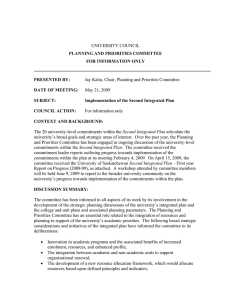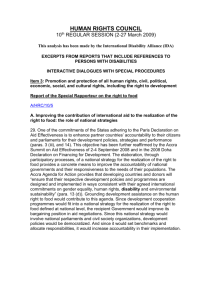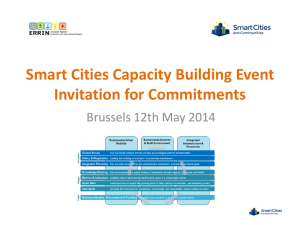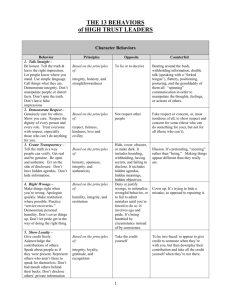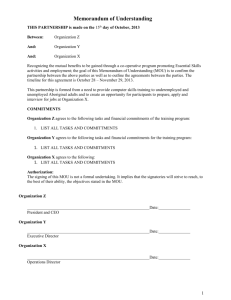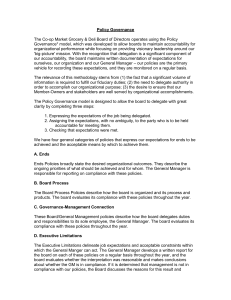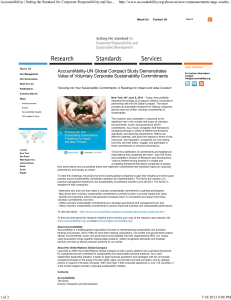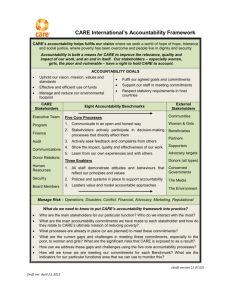Global Governance on Development - Draft note
advertisement
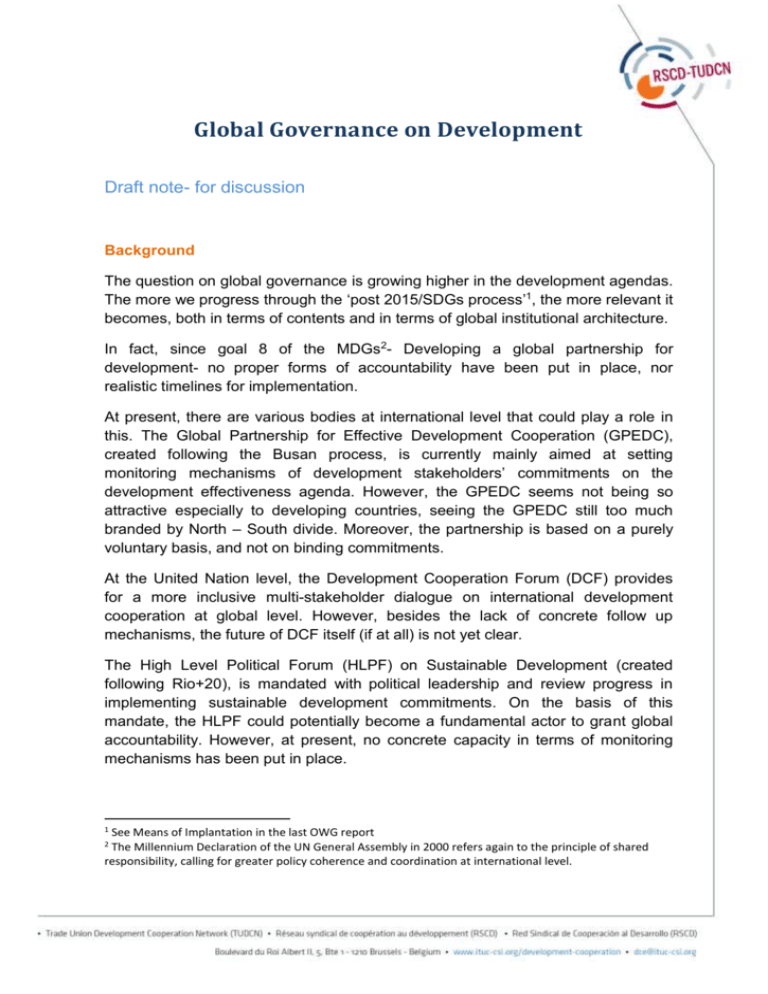
Global Governance on Development Draft note- for discussion Background The question on global governance is growing higher in the development agendas. The more we progress through the ‘post 2015/SDGs process’1, the more relevant it becomes, both in terms of contents and in terms of global institutional architecture. In fact, since goal 8 of the MDGs2- Developing a global partnership for development- no proper forms of accountability have been put in place, nor realistic timelines for implementation. At present, there are various bodies at international level that could play a role in this. The Global Partnership for Effective Development Cooperation (GPEDC), created following the Busan process, is currently mainly aimed at setting monitoring mechanisms of development stakeholders’ commitments on the development effectiveness agenda. However, the GPEDC seems not being so attractive especially to developing countries, seeing the GPEDC still too much branded by North – South divide. Moreover, the partnership is based on a purely voluntary basis, and not on binding commitments. At the United Nation level, the Development Cooperation Forum (DCF) provides for a more inclusive multi-stakeholder dialogue on international development cooperation at global level. However, besides the lack of concrete follow up mechanisms, the future of DCF itself (if at all) is not yet clear. The High Level Political Forum (HLPF) on Sustainable Development (created following Rio+20), is mandated with political leadership and review progress in implementing sustainable development commitments. On the basis of this mandate, the HLPF could potentially become a fundamental actor to grant global accountability. However, at present, no concrete capacity in terms of monitoring mechanisms has been put in place. 1 See Means of Implantation in the last OWG report The Millennium Declaration of the UN General Assembly in 2000 refers again to the principle of shared responsibility, calling for greater policy coherence and coordination at international level. 2 Future Advocacy Avenues The question of monitoring mechanisms is central to grant accountability, which should be based on internationally agreed human rights commitments. Nowadays, there are various mechanisms that are supposed to relate to monitoring and assessment3. Still it seems very difficult to make them function in reality (also because they are voluntary). Emerging proposals are also going in the direction of a “framework convention” (focused on the right to development) which would bring about ‘heavier’ obligations to development stakeholders. Trade Unions have been always advocating for binging commitments based on international standards (i.e. ILO system and Conventions) and holding all relevant development actors accountable, throughout their participation in international fora (development effectiveness agenda and post 2015 process). Therefore, shall we move forward to support more specific policy asks in this direction? If so, how shall we do that? Proposals: → Policy workshop aimed at discussing "global development governance". It will include analysis on current avenues on how to strengthen global accountability and it will be aimed at taking a TU political stand for shared advocacy; → making alliances with global CSOs platforms on specific asks/processes; →other suggestions? 3 Such as the Economic and Social Council’s annual voluntary ministerial review process; the Universal Periodic review of the Human Rights Council; the Guiding Principles on Business and Human Rights; the Guiding Principles on Extreme Poverty and Human rights etc..
